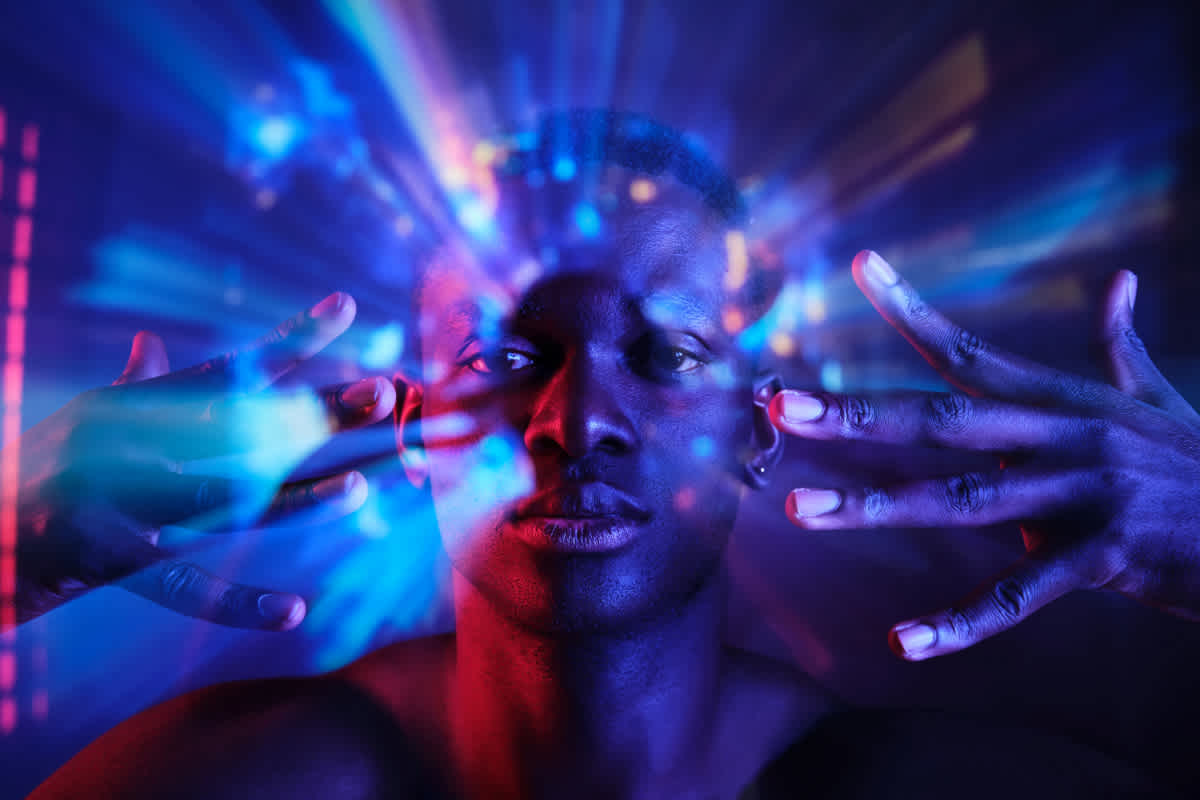Psychosis vs. Schizophrenia

Psychosis and schizophrenia are terms that are often used together, or even interchangeably. But while psychosis and schizophrenia are related, they are not identical.
Psychosis is a group of symptoms. Schizophrenia is a mental health disorder. While psychosis is often one of the symptoms of schizophrenia, an individual can experience a psychotic episode without ever being diagnosed with schizophrenia. Drug-induced psychosis is one example of this.
For people struggling with schizophrenia and/or psychosis—and for their loved ones—this page provides detailed information about the differences between these two conditions, and also how they are related.
What Is Psychosis?
Psychosis is a cluster of mental-emotional symptoms that indicate a loss of touch with reality, but not a complete break from reality. When a person experiences such symptoms, they're said to be having a psychotic episode or a psychotic break.
There are about 100,000 new cases of psychosis in the United States each year. 1
There is often confusion between "psychosis"—a group of symptoms—and "psychotic disorders"—which is an official category of mental illnesses as listed in the DSM-5. Schizophrenia is one of the mental illnesses that is a subcategory of psychotic disorders. A substance/medication-induced psychotic disorder is another subcategory of psychotic disorders.
But the term "psychosis," on its own, typically refers only to a group of symptoms. The two main symptoms of psychosis are hallucinations and delusions.
Hallucinations
Hallucinations are the apparent perception of something that's not happening. It's when an individual sees, hears, feels, smells, or tastes things that aren't occurring outside of their own mind. In the person's own subjective experience, the hallucinations are often as clear and vivid as normal perceptions. A person who is having a psychotic episode, for instance, might hear voices when no one else is around; see an object that isn't there; or perceive a scent that has no actual source in a shared reality.
Delusions
Delusions are strongly held beliefs or judgments that aren't shared by most others and are very likely to be untrue. Such beliefs are often deeply irrational: maintained even in the face of nearly incontrovertible evidence to the contrary. Even though they are based on a mistaken or strange or unrealistic view, the delusions are held with utter conviction. An individual can be so convinced of the reality of their delusion that no amount of logical argument can persuade them otherwise.
A person experiencing delusions may, for instance:
Believe that they have supernatural powers, a special mission, or might be a god
Imagine they have a special intimate relationship with a celebrity
Think that others are conspiring to harm them or are following them
Believe that outside forces are controlling their thoughts, feelings, or actions
Think they are receiving special messages via radio or television
Warning Signs of Psychosis
A person who is on the verge of a psychotic episode will often experience changes in their thoughts, feelings, and/or behavior before the psychosis develops fully. Such warning signs of a psychotic break may include:
Emotional changes Mood swings (unusually excited or depressed); feelings of being cut off from the world; increased suspiciousness/paranoia or uneasiness; strange feelings or no feelings at all.
Behavioral changes Behaving differently than usual (extremely active or lethargic); withdrawal from other people; laughing inappropriately or becoming angry or upset without an apparent cause; a significant drop in performance at school or work; a decline in self-care or personal hygiene.
Confused thinking Muddled or confused thoughts; nonsensical or confused speech; difficulty concentrating or remembering things; mind racing or appearing to process information in slow motion; problems distinguishing reality from fantasy.
Psychosis Risk Factors
Conditions that can increase the risk of a psychotic break include:
Mental health disorders such as schizophrenia, bipolar disorder, severe depression, or anxiety
Substance use—for instance, long-term methamphetamine, cannabis, or alcohol misuse
Sleep deprivation
Use of certain medications such as corticosteroids, drugs used to treat Parkinson's disease, and some types of antibiotics
Medical conditions such as: Dementia including Alzheimer's disease, Parkinson's disease, Huntington's disease, Multiple sclerosis, Lupus, Epilepsy, Traumatic brain injury, Brain tumors, HIV/AIDS, Syphilis, Malaria
Understanding what is schizophrenia can provide additional context for how these risk factors contribute to psychotic symptoms.
The Three Phases of Psychosis
Mental health professionals often speak of psychosis in terms of three distinct phases, corresponding to early signs, the acute phase of the psychotic episode, and the recovery process. 2
Phase 1: Prodome (aka Psychosis Syndrome)
The early signs of a psychotic break are often vague and may be barely noticeable. While each individual's experience will be unique, some of the common signs associated with the prodome phase include:
Anxiety
Suspiciousness
Problems concentrating
Decreased motivation
Depressed mood
Sleep disturbances
Drop in school, work, or social function
Withdrawal from family and friends
Taking on odd beliefs or magical thinking
Phase 2: Acute
The acute phase of psychosis—aka the critical period—is when the actual symptoms begin to appear. As mentioned above, the primary symptoms of psychosis are hallucinations and delusions.
During the acute phase of a psychotic break, the person may become extremely distressed by what is happening to them. They might also behave in a way that's so out of character that their friends and family members become extremely concerned and decide that it's time to seek professional help.
Phase 3: Recovery
It's important to understand that psychosis is a treatable condition. With effective treatment, most people can recover fully from their first episode of psychosis—and may never experience another one.
Some of the symptoms of the acute phase of a psychotic break may linger in the recovery phase. But with appropriate treatment—supervised by mental health professionals—most people successfully recover and can return to their everyday lives.
Drug-Induced Psychosis
Misusing drugs or alcohol—or the sudden withdrawal from them—can trigger a psychotic episode. Drug-induced toxicity affects brain chemistry. So a person who has consumed a large amount of alcohol or drugs may experience psychosis which is the result, at least in part, of such biochemical changes. If such episodes recur, the individual may be diagnosed with a substance/medication-induced psychotic disorder.
Like other forms of psychosis, the primary symptoms of substance-induced psychosis are hallucinations and delusions. People experiencing psychosis may experience a variety of other symptoms as well. Early treatment can be essential for a person's well-being and mental health.
According to the Diagnostic and Statistical Manual of Mental Disorders, Fifth Edition (DSM-V), an official diagnosis of substance/medication-induced psychotic disorder also requires:
Evidence that the hallucinations or delusions started during or soon after substance intoxication or withdrawal—or that the substance used is known to cause the disturbance.
That the psychotic symptoms are not better explained by a psychotic disorder unrelated to substance use.
That the psychotic symptoms cause clinically significant distress or difficulty with normal activity such as work or social interactions.
There is no single drug that necessarily causes drug-induced psychosis. Understanding a drug's side effects and addiction potential before taking it are effective ways to reduce the risk of substance-induced psychosis. But the only fool-proof way to prevent drug-induced psychosis is by abstaining from drug use.
Understanding what does drug use do to the brain can help explain how substances trigger psychotic episodes.
Alcohol-Induced Psychosis
Alcohol is one of the substances whose misuse can trigger substance-induced psychosis. Acute alcohol intoxication, alcohol withdrawal, as well as chronic alcoholism can all trigger alcohol-related psychosis, which is also known as alcohol hallucinosis. 3
In this form of psychosis, hallucinations, delusions, and other psychotic symptoms (e.g., paranoia, fear, confusion, aggression) appear during or shortly after heavy alcohol intake—or during the withdrawal process. While alcohol-related psychosis is similar to schizophrenia, it is considered to be a unique condition.
Meth-Induced Psychosis
Methamphetamines are potent psychostimulants that may cause psychotic episodes in recreational or chronic users. Psychotic symptoms and syndromes are experienced in approximately 40% of individuals who use methamphetamine. 4
Acute symptoms of meth-induced psychosis can include agitation, violence, and delusions. For some meth users, psychotic episodes may recur and be difficult to distinguish from a primary psychotic disorder such as schizophrenia.
Cannabis-Induced Psychosis
Researchers have established a correlation between cannabis consumption and a variety of mental health disorders, including cannabis-induced psychosis. Cannabis use is considered a risk factor—an environmental stressor—that increases the odds of having a psychotic episode. And long-term use is associated with a greater risk of psychosis. 5
The psychoactive effects of Delta 9-THC in cannabis include feelings of dreaminess, disinhibition, and heightened awareness of sounds (e.g., music), colors, or tastes. The effects of this drug may also induce psychotic symptoms such as visual hallucinations, paranoid ideation, and mood instability. Other possible symptoms of marijuana-induced psychosis include isolation and agitation.
Acute episodes of cannabis-induced psychosis can last from a few days to several months.
What is Schizophrenia?
Movies such as A Beautiful Mind and The Soloist portray the real-life stories of people (mathematician John Nash and musician Nathanial Ayers) who have suffered from schizophrenia. But what exactly is schizophrenia, and how is it related to or different from psychosis?
Schizophrenia is a severe and chronic mental illness that affects how a person thinks, feels, and behaves—and creates the impression that people who suffer from the disease are "out of touch with reality." 6
According to the National Institute of Mental Health, schizophrenia affects less than one percent of the U.S. population: The prevalence of schizophrenia and related disorders is between 0.25 and 0.64 percent.
Men with schizophrenia typically develop the first symptoms of the disease in their late teens or early-20s. Women usually begin showing symptoms in their late-20s or early-30s. It's unusual for people to be diagnosed with schizophrenia before age 12 or after age 40.
The exact cause of schizophrenia is unknown. However, experts believe that genetics; environmental factors; and irregularities in the functioning of neurotransmitters (chemicals in the brain)—particularly dopamine—likely play a role.
As an officially diagnosed mental health disorder, schizophrenia belongs to the larger category of "psychotic disorders."
The full list of psychotic disorders includes:
Three schizophrenia spectrum disorders: schizoaffective disorder, schizophreniform disorder, and schizotypal
Brief psychotic disorder
Delusional disorder
Shared psychotic disorder
Substance/medication-induced psychotic disorder
Paraphrenia
As mentioned above, this diagnostic category of "psychotic disorders" should not be confused with the cluster of symptoms known as "psychosis."
People diagnosed with the psychotic disorder schizophrenia often experience psychosis as one of their symptoms. But not everyone who experiences psychosis has a schizophrenia diagnosis.
Five Types of Schizophrenia
There are different subtypes of schizophrenia—distinguished according to their primary symptoms.
Catatonic schizophrenia characterized by impaired, rigid, or odd movement, or unresponsiveness
Disorganized schizophrenia (aka hebephrenic schizophrenia) characterized by disorganized speech, thinking, or behavior
Paranoid schizophrenia characterized by auditory hallucinations and thoughts/feelings of being persecuted
Residual schizophrenia the recovery phase when symptoms linger from a history of schizophrenia
Undifferentiated schizophrenia a category for individuals who do not fall under any of the other categories
Symptoms of Schizophrenia
Mental health professionals use the criteria described in the Diagnostic and Statistical Manual of Mental Disorders, Fifth Edition (DSM-5) to diagnose schizophrenia.
General Types of Schizophrenia Symptoms
The symptoms of schizophrenia 7 are divided into three major categories: 8
1. Positive symptoms Also referred to as "psychotic symptoms," these are symptoms that are abnormally present in a person suffering from schizophrenia. They include hallucinations, delusions, paranoia, and exaggerated or distorted perceptions, beliefs, and behaviors.
2. Negative symptoms These are symptoms that are abnormally absent in a person suffering from schizophrenia. They include a loss or a decrease in the ability to speak, express emotion, experience pleasure, or initiate plans.
The person may withdraw from the world around them, isolate themselves, take little or no interest in everyday social interactions or conversation, and appear emotionless and with a flat affect. In extreme cases, the individual might completely stop moving or talking—a rare condition called catatonia.
3. Disorganized symptoms Also referred to as "cognitive symptoms," these include confused or disordered thinking and speech, trouble with logical thinking, information-processing, concentration, memory, or attention, as well as occasional strange behavior or abnormal movements.
Schizophrenia Spectrum Disorders
Schizophrenia symptoms can change over time. To reflect these differences—and how they occur along a spectrum—psychiatrists often categorize symptoms into three different schizophrenic spectrum disorders.
Schizoaffective disorder A combination of schizophrenia symptoms, such as hallucinations or delusions, with mood disorder episodes (e.g., depression or mania).
Schizophreniform disorder A psychotic disorder with symptoms that last for a shorter amount of time (longer than a month but less than six months)—than is the case with schizophrenia.
Schizotypal personality disorder Similar to schizophrenia, episodes are not as frequent, prolonged, or intense. Also, people with this disorder can usually be made aware of the difference between their distorted ideas and experiences, and reality.
Other Psychotic Disorders
Along with the three schizophrenia spectrum disorders, there are five other psychotic disorders.
These include:
Brief psychotic disorder in which psychotic symptoms appear suddenly and last less than a month
Delusional disorder in which a person experiences one or more delusions (e.g., grandiose, jealous, persecutory, somatic, erotomatic) for at least a month
Shared psychotic disorder when one person in a relationship has a delusion, and the other person adopts the same false belief
Substance/medication-induced psychotic disorder marked by hallucinations and/or delusions caused by the use of a drug or alcohol, or withdrawal from the substance.
Paraphrenia similar to schizophrenia but starts later in life
Psychosis vs Schizophrenia
Both psychosis and schizophrenia can negatively affect a person's mental health and well-being. Both are associated with a break from reality—with perceiving and experiencing the world in ways that are dramatically different from how others do.
The difference, once again, is that psychosis is a collection of symptoms that demonstrate a loss of touch with reality. A psychotic episode can be catalyzed by alcohol or drug abuse, a medical condition, sleep deprivation, trauma, or certain prescription medications—as well as by various mental health disorders.
Schizophrenia, on the other hand, is a mental health disorder that often has psychosis as one of its symptoms. But there are additional symptoms and diagnostic criteria for schizophrenia.
How Is Psychosis Related To Schizophrenia?
An individual with schizophrenia can experience periods of psychosis, known as psychotic episodes. During these episodes, they may experience hallucinations and delusions—so-called "positive symptoms" of schizophrenia.
But a person can also experience psychosis without having schizophrenia or another mental health disorder.
Treatment for Psychosis
Treatment for psychosis is most effective when it's identified and treated early. The standard treatment for psychosis typically includes:
Medications
Antipsychotic medications—given as a pill or injection—can help to reduce the symptoms of psychosis.
Therapy
Cognitive behavioral therapy (CBT) is one effective therapeutic modality for treating psychosis, along with CBTP—cognitive behavioral therapy adapted specifically for psychosis. 9
Family support
Family therapy helps family members learn how to interact effectively and compassionately with the person who has experienced and is now recovering from a psychotic episode.
Social support
Vocational support and life skills training can help the individual feel comfortable returning to work, school, and social activities.
Treatment for Schizophrenia
Schizophrenia is a chronic condition for which there's no known cure. So, treatment focuses on managing symptoms and developing ways to effectively navigate daily living. Mental health professionals develop treatment plans based on evidence-based treatments for schizophrenia. Treatment protocols for schizophrenia generally include: 10
Medications
Antipsychotic medications can help with the psychotic symptoms of schizophrenia. These medicines can also be used for maintenance—to help prevent symptoms from returning.
Therapy
Cognitive behavioral therapy (CBT) can be an important part of the healing process for someone suffering from schizophrenia. A skilled therapist can help the person develop coping strategies, and learn ways to positively reframe thoughts and feelings.
Family support
It's highly beneficial for family members to learn about schizophrenia and how best to support their loved ones.
Social support
Vocational and life skills training may allow the person to return to school or work, improve their social skills, and learn new ways of relating to everyday challenges.
Managing co-occurring conditions
Schizophrenia often co-occurs with other physical or mental health conditions such as substance use disorders, depression, anxiety, OCD, cardiovascular disease, or diabetes. These can have a significant impact on the overall health and well-being of people with schizophrenia. Because of this, the management of such co-occurring conditions is another important aspect of schizophrenia treatment.
Comprehensive Treatment Approaches
Various levels of care are available to support individuals with psychotic disorders, from outpatient treatment to inpatient residential care when symptoms are severe.
Individual therapy and group therapy can both play important roles in recovery, while trauma-informed care may be essential for those whose psychotic symptoms are related to traumatic experiences.
Begin Your Healing Journey
Mental health treatment combines science and cutting-edge therapy with human compassion and understanding. Therapeutic modalities that may be beneficial include:
Behavior modification
Complementary therapies employed to enhance healing include:
Music therapy
Yoga
Use our comprehensive treatment directory to find qualified mental health providers in your area who specialize in treating various mental health disorders, such as schizophrenia or psychotic disorders, and can provide the specialized care needed for recovery.
References and Resources
Understanding Psychosis. National Institute of Mental Health. https://www.nimh.nih.gov/health/publications/understanding-psychosis
What Is Psychosis. Yale School of Medicine. https://medicine.yale.edu/psychiatry/step/psychosis/
Stankewicz HA, Richards JR, Salen P. Alcohol Related Psychosis. 2022 Jul 12. In: StatPearls [Internet]. Treasure Island (FL): StatPearls Publishing; 2022 Jan–. PMID: 29083782. https://pubmed.ncbi.nlm.nih.gov/29083782/
Glasner-Edwards S, Mooney LJ. Methamphetamine psychosis: epidemiology and management. CNS Drugs. 2014 Dec;28(12):1115-26. https://www.ncbi.nlm.nih.gov/pmc/articles/PMC5027896/
Grewal, Ruby S. and Tony P. George (July 14, 2017). Cannabis-Induced Psychosis: A Review. Psychiatric Times Vol 34 No 7. https://www.psychiatrictimes.com/view/cannabis-induced-psychosis-review
Schizophrenia. National Institute of Mental Health. https://www.nimh.nih.gov/health/topics/schizophrenia
What Is Schizophrenia? American Psychiatric Association. https://www.psychiatry.org/patients-families/schizophrenia/what-is-schizophrenia
Symptoms of Schizophrenia. National Health Service UK. https://www.nhs.uk/mental-health/conditions/schizophrenia/symptoms/
Miller, Caroline. How Does CBT Help People With Psychosis? Child Mind Institute. https://childmind.org/article/cbt-help-people-psychosis/#:~:text=CBT%20adapted%20for%20psychosis%20(CBTp,day%2Dto%2Dday%20life
Schizophrenia Treatment. National Alliance on Mental Illness. https://www.nami.org/About-Mental-Illness/Mental-Health-Conditions/Schizophrenia/Treatment
Locate Treatment Centers Near You
Enter your location to discover facilities offering the care and support you need in your area.



